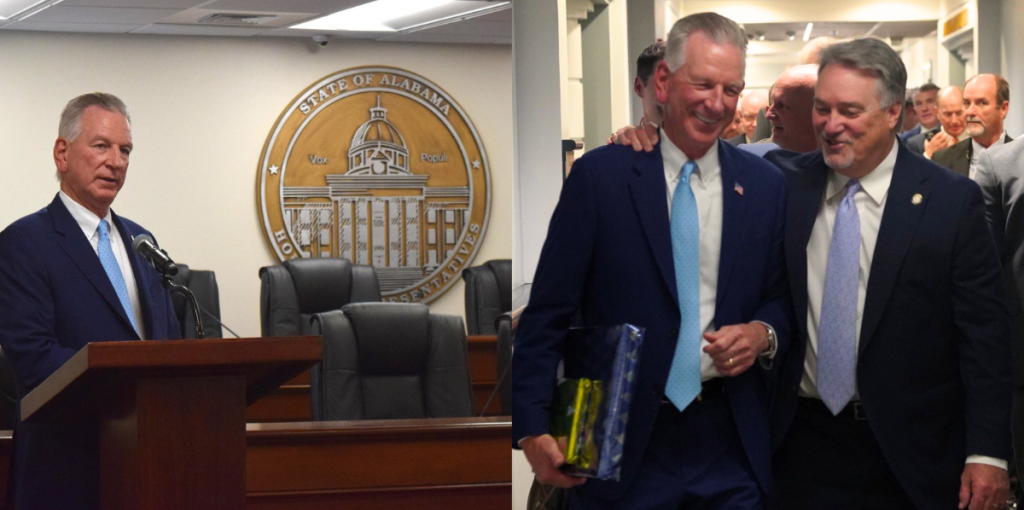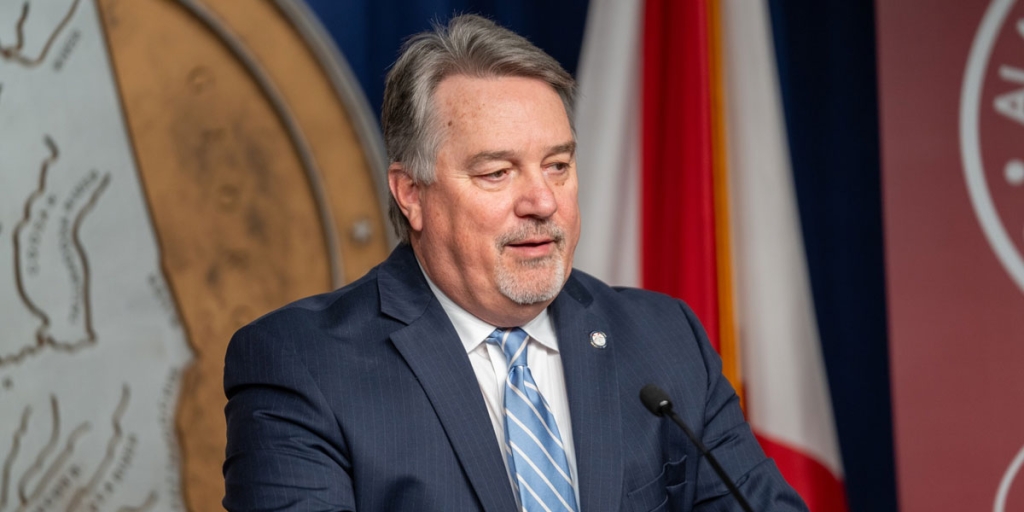As Shelby County lacks even a single residential addiction-treatment center, Alabama’s dominant rehab chain is pushing state regulators to deny a 60-bed project that the Statewide Health Coordinating Council has already cleared, and Governor Kay Ivey has already signed into the State Health Plan.
Bradford Health Services, owned by New York private-equity firm Lee Equity Partners, filed a formal challenge to Longleaf Recovery & Wellness’s Certificate of Need (CON) for Longleaf Lodge earlier this month.
Longleaf Recovery & Wellness, founded, owned and operated by Alabamians, wants to convert a 125-acre horse farm in Shelby County into Longleaf Lodge – a $33 million, 60-bed campus with 10 detox and 50 residential beds.
The project is precisely the kind of capacity Alabama’s own health-planning council said residents need.
In March, the SHCC approved, and Governor Kay Ivey signed, an adjustment adding 60 substance-use beds to Shelby County’s State Health Plan.
At that time, Bradford responded by filing formal opposition anyway – then escalated to a full-blown challenge.
Originally set for an October 15 hearing before the Certificate of Need Review Board, Longleaf’s application was automatically removed from that docket after Bradford filed for a contested case.
Under Alabama’s CON procedures, that filing diverts the matter straight to an administrative law judge for discovery, motions, and an evidentiary hearing.
Only after that judge issues a recommended order will the project even be placed back on a future CON Board agenda.
Bradford’s core message to regulators has so far been blatantly anti-competitive: There is “no need for additional substance use beds,” county-specific planning is wrong, and Longleaf’s payer mix will focus too much on commercial insurance.
The company statedly acknowledges in filings that Shelby County has no residential facility — and still says that doesn’t establish need.
Such has been the playbook of Bradford Health in Alabama.
In 2020, Bradford petitioned Alabama’s health agency for a declaratory ruling to drag a small 16-bed Morgan County startup, Sereno Ridge, into the Certificate of Need process. The project never opened its doors.
In 2022, when Veterans Recovery Resources sought a 34-bed detox and residential program in Mobile, Bradford’s opposition dogged the effort up to the day of the meeting, until they suddenly ceased and the plan successfully advanced.
This year, when a nonprofit proposed a 30-bed veteran-focused campus in Valley, near Fort Benning, Bradford again showed up as the opposition.
Meanwhile, the same private-equity-backed Bradford is busy growing – just not where Alabama needs recovery options.
In 2024, it bought Florida’s Lakeview Health. This summer it scooped up three more facilities in Texas.
Through a combination of anti-competitive strategies, Bradford Health is expanding its empire across state lines and using Alabama’s Certificate of Need levers to keep rivals out.
Longleaf’s leaders, for their part, describe a years-long effort to cooperate with Bradford that went nowhere.
Founder and CEO of Longleaf, Colin Harris, has been increasingly vocal about the potential for a new recovery center to not open its doors to serve Alabama families.
“Right now, Bradford is trying to block our efforts to bring real treatment options to Alabama, and I want you to know why Longleaf Recovery & Wellness was started right here in Alabama. We opened Birmingham Recovery Center in 2021, and since then we’ve grown to four outpatient locations across the state,” Harris said in a video personally advocating for widespread attention on the issue.
“That growth comes from two things: the tremendous need for more treatment options across Alabama, and the quality of substance use and mental health treatment our team delivers every single day.”
“We’re not some out-of-state corporation. We’re a local startup, deeply rooted here, raising the standard of treatment for our people,” Harris said.
“Our next step is Longleaf Lodge, a state-of-the-art, 60-bed residential facility on a beautiful 125-acre horse farm in Shelby County. It means people can finally get treatment close to home, instead of leaving the state and paying out of pocket just to get the care they deserve.”
“But here’s the problem: Bradford Health Services, a New York private-equity-owned company that controls nearly all the treatment beds in Alabama, opposed us at the State Health Coordinating Council. The Council still agreed there was a need, and the governor signed off on that. Yet they opposed us again before our CON hearing, and now they’ve filed for a contested case. Their latest move is just another attempt to hold on to power, block progress, and delay us further.”
“Profit over people,” Harris said. “The CON process is meant to ensure projects meet community needs. Bradford is twisting it into a weapon to keep out competition.”
Because Bradford filed for a contested case, Longleaf’s application has been pulled off the October CON Board docket and diverted to an administrative law judge.
Only after that ruling will the project be eligible to appear on a future CON Review Board agenda.
Even in a best-case scenario for Longleaf, Bradford’s approach has added months before any families will be cared for.
Grayson Everett is the editor in chief of Yellowhammer News. You can follow him on X @Grayson270.













